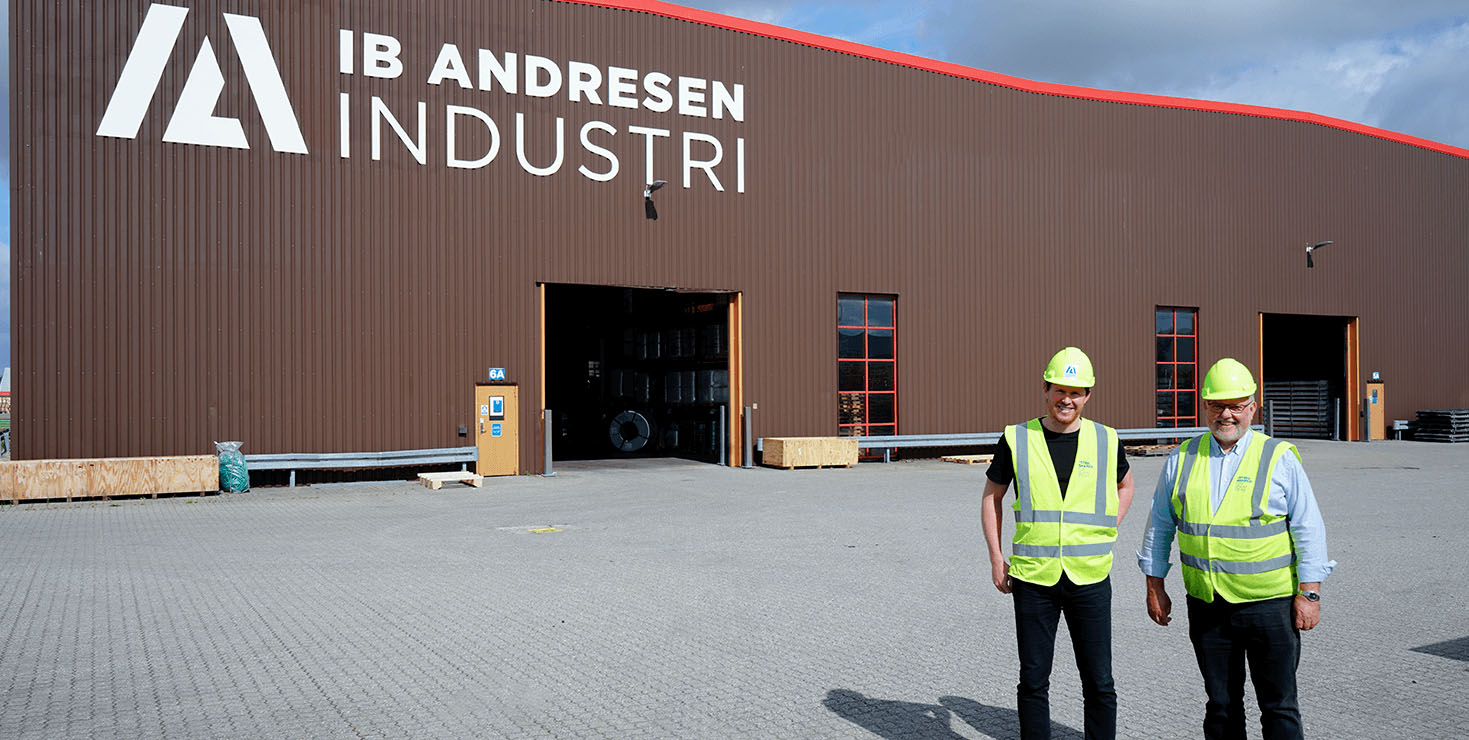"We want to contribute to a greener world. That's why we've had to look closely at our energy consumption," says Martin Helle, Project & Facility Manager at Ib Andresen Industri, and continues:
"This has meant that we initially have to replace our oldest gas boiler with heat pumps, which will include five of our production halls."
Converted to kWh, the calculations show that the energy consumption in the affected production halls will decrease annually from approx. 832,000 to approx. 161,000, and "that's a drop of more than 80 per cent. This corresponds to 9.3 per cent. of the CO2 emissions from our energy consumption in 2020," adds Kasper D. Rasmussen, Energy & Environmental Manager at Ib Andresen Industri:
"Which corresponds to an annual reduction of 209,000 kg of CO2. The same amount of CO2 that 110 houses of 140 m2 from the 1970s would use in a year.”
When the heat pumps blow heat into the production halls in the future, it will also provide a different level of comfort in the production halls, as the gas boilers today give off radiant heat.
It's also good business
Although there is a desire to be a greener company, the green initiatives must also be able to pay off financially.
"We must be able to run a healthy business and be green at the same time. And we can. Partly because the price level for green solutions has fallen in recent years, and partly because we can apply for subsidies for green solutions," explains Martin Helle.
And Ib Andresen Industri has taken advantage of the latter, because "we have signed an prior agreement where we undertake to invest in the heat pumps."
The green commitment also comes with a subsidy.
In total, the investment amounts to a few million kroner, while the subsidy is around half a million kroner. The investment can thus pay for itself at approx. 4 years.
Photo / Kasper D. Rasmussen, Energy & Environmental Manager (left) and Martin Helle, Project & Facility Manager in front of two of the affected production halls.
In the links you will find the figures we have used to convert kWh to CO2 etc. Please note that the links are to Danish websites.
https://energinet.dk/Gas/Biogas
https://www.volker-quaschning.de/datserv/CO2-spez/index_e.php
